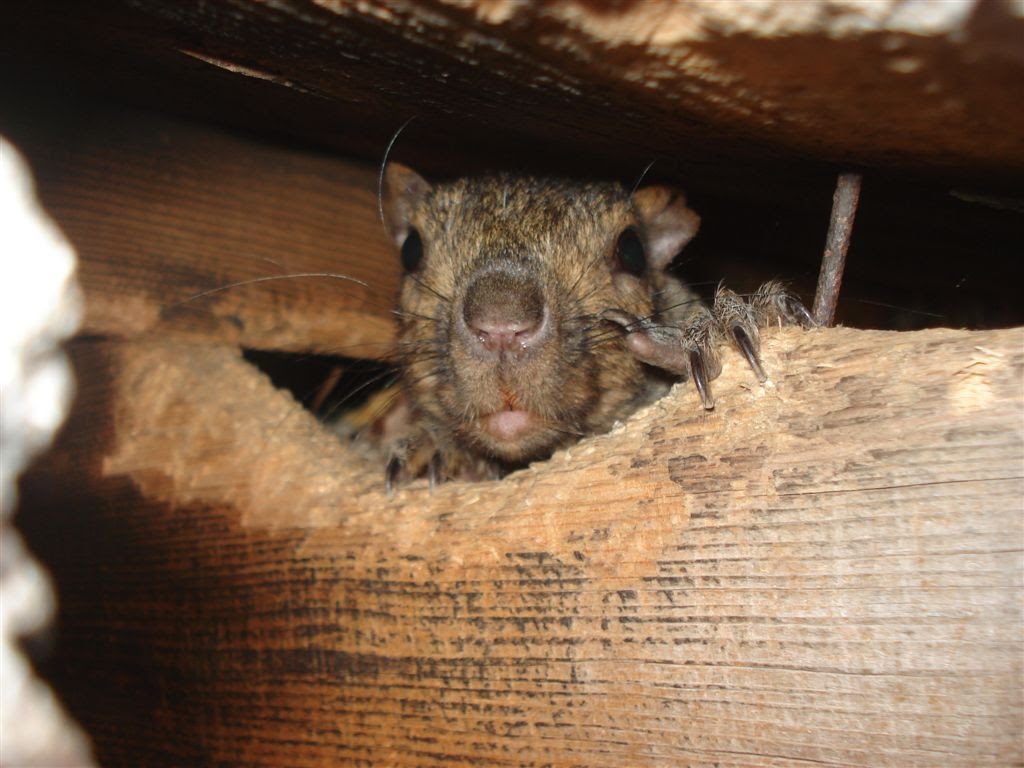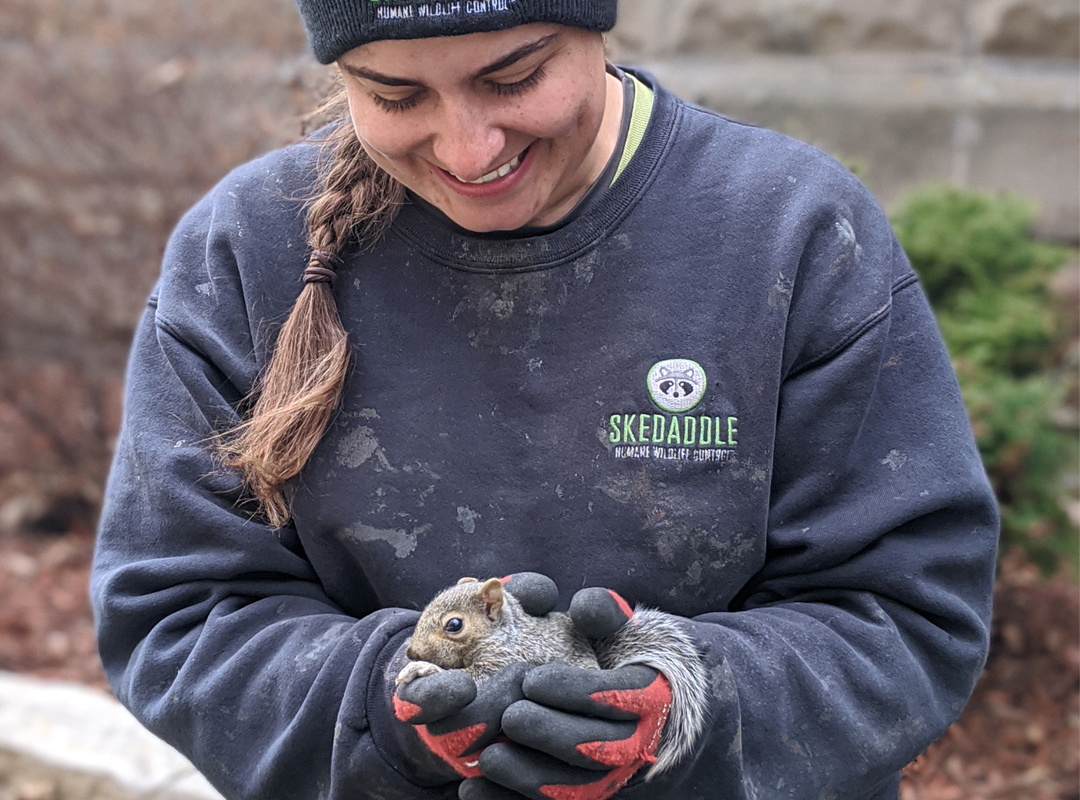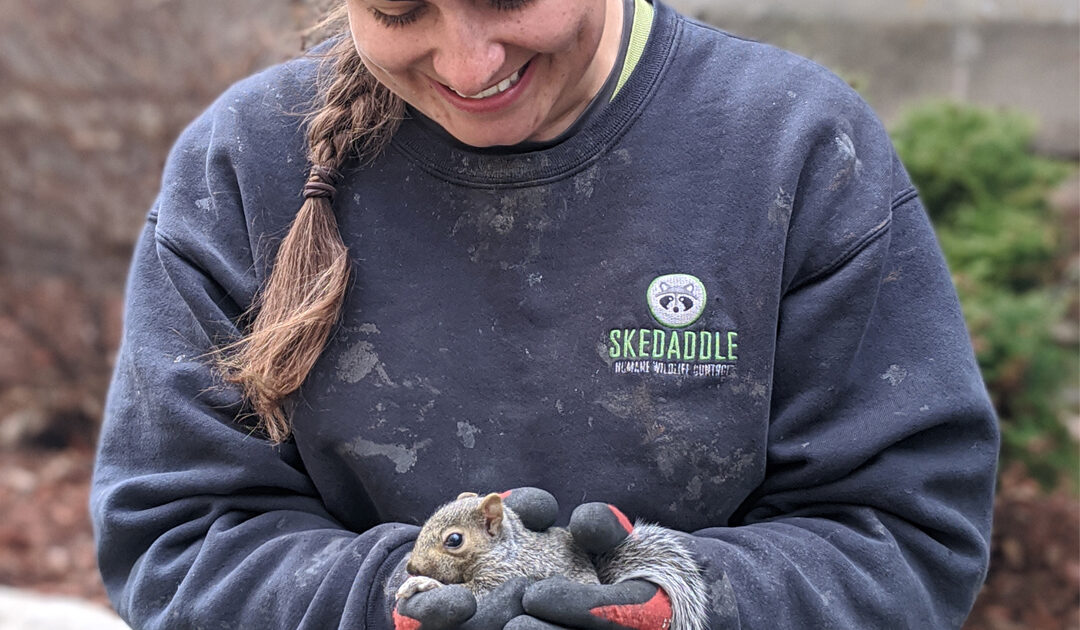Many homeowners in Coquitlam have encountered squirrels on their property, either rummaging through their gardens or nesting in their attics. Squirrels are known to be harmless and often entertaining to watch as they go about their day-to-day activities in our neighbourhoods. However, do squirrels carry disease?
While these furry creatures may seem harmless and cute, they can actually pose a serious health risk. They are known to transmit diseases, and their droppings, urine, and saliva can contaminate the environment. This is especially concerning for those who have found them living inside their house. In order to protect yourself and your family, it’s important to understand the risks associated with squirrel infestations and take necessary precautions.
One of the most effective measures is to have them removed by the licensed professionals at Skedaddle, who can safely and humanely capture these animals. Keep reading to learn more about the dangers of squirrels and how to prevent disease transmission in your home.
The Untold Health Hazards of Squirrels in Residential Areas
To begin with, squirrels are carriers of numerous diseases, some of which can be transmitted to humans. One such example is leptospirosis, a bacterial infection that can cause severe kidney damage, meningitis, liver failure, and respiratory complications. This disease is transmitted through the urine of infected animals, often contaminating water and soil. If humans or pets come into contact with this contaminated matter, they are at risk of contracting the infection.
Another significant concern is Lyme disease. While squirrels themselves do not transmit this illness, they are known to be hosts for black-legged ticks – carriers of Lyme bacteria. If an infected tick latches onto a human or a pet, it can transmit Lyme disease, leading to flu-like symptoms and potential complications involving the heart, joints, and nervous system if left untreated.
They can also carry rabies, although it’s worth noting that incidents of transmission to humans are relatively rare compared to other wildlife species like bats or raccoons. Nonetheless, it’s imperative to steer clear of any squirrel behaving erratically as it could be a sign of rabies.
Furthermore, droppings and urine can lead to salmonella and Giardia infections. These pathogens can cause gastrointestinal problems, including diarrhea, stomach cramps, and nausea. It’s important to never handle droppings without appropriate protective gear.
Recognizing the Health Risk Signs
While squirrels may seem innocent enough, it’s critical to recognize signs of potential health risks if they’ve invaded your living spaces. Look out for signs of droppings or urine in your attic or garage. If you notice chewed-up wire coverings or insulation – hallmarks of squirrel activity – it’s vital to act immediately to minimize disease transmission risks.
The experts at Skedaddle are trained to identify these signs and effectively mitigate the health hazards posed by squirrels. Their humane approach ensures that squirrels are removed properly, without causing them harm, thus helping minimize the health risks to you and your family.
The bottom line is, cute as they may be, squirrels can present a real danger by spreading diseases. It’s paramount to keep them out of your homes and gardens, but, when infestations occur, it’s equally important to act swiftly and seek professional help. Safety should always be the top priority – yours, your families, and the wildlife around you.
Expert Guidelines for Preventing Disease Transmission from Squirrels
Keeping squirrels at bay and preventing them from transmitting diseases is imperative. Here are some expert guidelines provided by Skedaddle to help you with this:
Maintain a Clean Outdoor Space
Regular Cleaning: Conduct frequent cleaning of your backyard and garden. Dispose of fallen fruits or nuts, as these can attract squirrels. Regular cleaning reduces the chances of squirrels nesting on your property.
Never Feed Squirrels
Feeding squirrels may seem like a friendly gesture, but this encourages them to return and see your property as a source of food. This inadvertently increases the chances of disease transmission.
Remember: If squirrels associate your property with food, they will likely frequent the area, raising the likelihood of spreading diseases.
Use Squirrel-Proof Bird Feeders
Preventive Measure: If you love feeding birds in your backyard, make sure to invest in squirrel-proof bird feeders. Squirrels are agile climbers and notorious for raiding bird feeders. Not only do they eat the bird-food, but their presence can also deter birds from visiting your yard.

How to Keep Squirrels Out of Your House
The first step to prevent squirrels from entering your home is understanding their behaviour. Being arboreal creatures, they are excellent climbers, and any tree branches, vines, or other structures that touch your home can provide a pathway for these animals. So, what preventive measures can you take? Let’s discuss them.
Trim Nearby Branches
Immediate Action: Regularly trim any tree branches or bushes that touch or hang close to your home. This eliminates a key route for squirrels to access your house, thereby reducing the chances of infestation.
Seal all Openings
Squirrels can fit through small holes to gain entry into your house, especially your attic. Therefore, it’s extremely important that you check for and seal any cracks or gaps in your home’s exterior, particularly around the soffits and roof. Remember: even a very small hole can be enough for a squirrel to gnaw and enlarge, making it an entry point.
Invest in Chimney Caps and Vent Covers
Open chimneys and vents are like an open invitation to squirrels. To keep them from entering, install metal chimney caps and vent covers. This not only prevents squirrels from entering but also other critters who might see your chimney or vents as a welcoming home.
Keep Your Attic Clean and Cold
Squirrels find attics attractive due to the warmth and excellent nesting material. Quick Tip: Make your attic less appealing by keeping it clean and minimizing clutter. Also, ensuring proper attic insulation and ventilation can help it stay cooler, making it less attractive to squirrels.
It’s important to note that while these measures can help deter squirrels from invading your home, expert assistance from a wildlife control service like Skedaddle provides the surefire solution to effectively and humanely manage any squirrel issues in your home.
Call Skedaddle of Squirrel Removal in Coquitlam
If you are experiencing a squirrel problem in Coquitlam, Skedaddle is the trusted authority for wildlife control and removal. With a team of experienced professionals, equipped with the required expertise and techniques, we work to ensure your property is free from these potential health risks.
While we understand your desire to maintain a peaceful coexistence with wildlife, when it comes to squirrels, there is a fine line between being a wildlife enthusiast and ensuring the safety of your household.
At Skedaddle we don’t just remove squirrels from your property, we also take measures to ensure they don’t return. After the safe removal of these animals, our team will thoroughly sanitize the area, removing any traces of droppings and urine and thus preventing the risk of disease transmission.
Moreover, our technicians will conduct a detailed inspection of your house to spot and seal potential entry points. This ensures that other squirrels will not re-infest your house in the future. We believe in providing permanent solutions for your wildlife problems, rather than temporary quick fixes.
Ready to take the first step towards a squirrel-free home? Don’t wait for the problem to escalate – reach out to the Skedaddle team in Coquitlam today for effective, humane, and lasting solutions to your squirrel issues.




